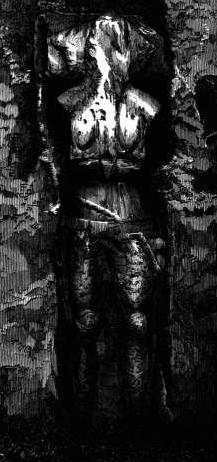Alexander Stewart, Earl of Mar
| Alexander Stewart Alasdair mac Alasdair Mór |
|
|---|---|
| Earl of Mar, and Lord of Garioch, Lochaber and Badenoch | |
 |
|
| Reign | Mar and Garioch: 1404/8–35 Lochaber: 1424–35 Badenoch: 1427–35 |
| Predecessor |
Isabel Douglas, Countess of Mar* *obtained lordship of Mar by this marriage. |
| Successor | Robert Erskine, 1st Lord Erskine, de jure 13th Earl of Mar |
|
Issue
Thomas Stewart (bastard)
|
|
| Noble family | Badenoch Stewart |
| Father | Alexander Stewart, Earl of Buchan |
| Mother | Mairead inghean Eachann |
| Born | c. 1375 |
| Died | July/August, 1435 Mar |
| Buried | Blackfriars, Inverness |
Alexander Stewart (c. 1375 – 1435) was a Scottish nobleman, Earl of Mar from 1404.
He was an illegitimate son of Alexander Stewart, Earl of Buchan and probably Mairead inghean Eachann.
Alexander held the Earldom of Mar and the Lordship of the Garioch in right of his first wife Isabel Douglas, Countess of Mar (d. 1408). Alexander's marriage to Isabella followed his capture of Kildrummy Castle, and Isabella with it, in 1404. This event sent major shockwaves throughout the kingdom and Alexander only escaped punishment because he was a close relation to the Royal Family. His possession of the Earldom was later regularised in 1424 by grant of his cousin, King James I.
He was a close supporter of his uncle Robert Stewart, Duke of Albany, who was then ruler of the kingdom as regent for his brother King Robert III of Scotland, after he had been badly injured being kicked by his horse. Alexander led the so-called "Lowland" army, in fact that of the north-east and eastern Highlands, against Domhnall of Islay, Lord of the Isles at the bloody and indecisive battle of Harlaw in 1411.
Unlike his father, who had been unable to keep the peace in the fractious north-east, Alexander, Walter Bower says, "ruled with acceptance nearly all of the north of the country beyond the Mounth". He achieved this not by using different methods from his father but by his ability to keep his cateran forces in check and to use them to protect his extensive lands when needed; the result was that the lowland areas of Aberdeenshire and Moray were protected.
Alexander sat on the jury of 21 knights and peers which convicted his cousin, Murdoch Stewart, Duke of Albany and two of his sons of treason in 1424, leading to the execution of Albany and his sons and the virtual annihilation of his family.
...
Wikipedia
